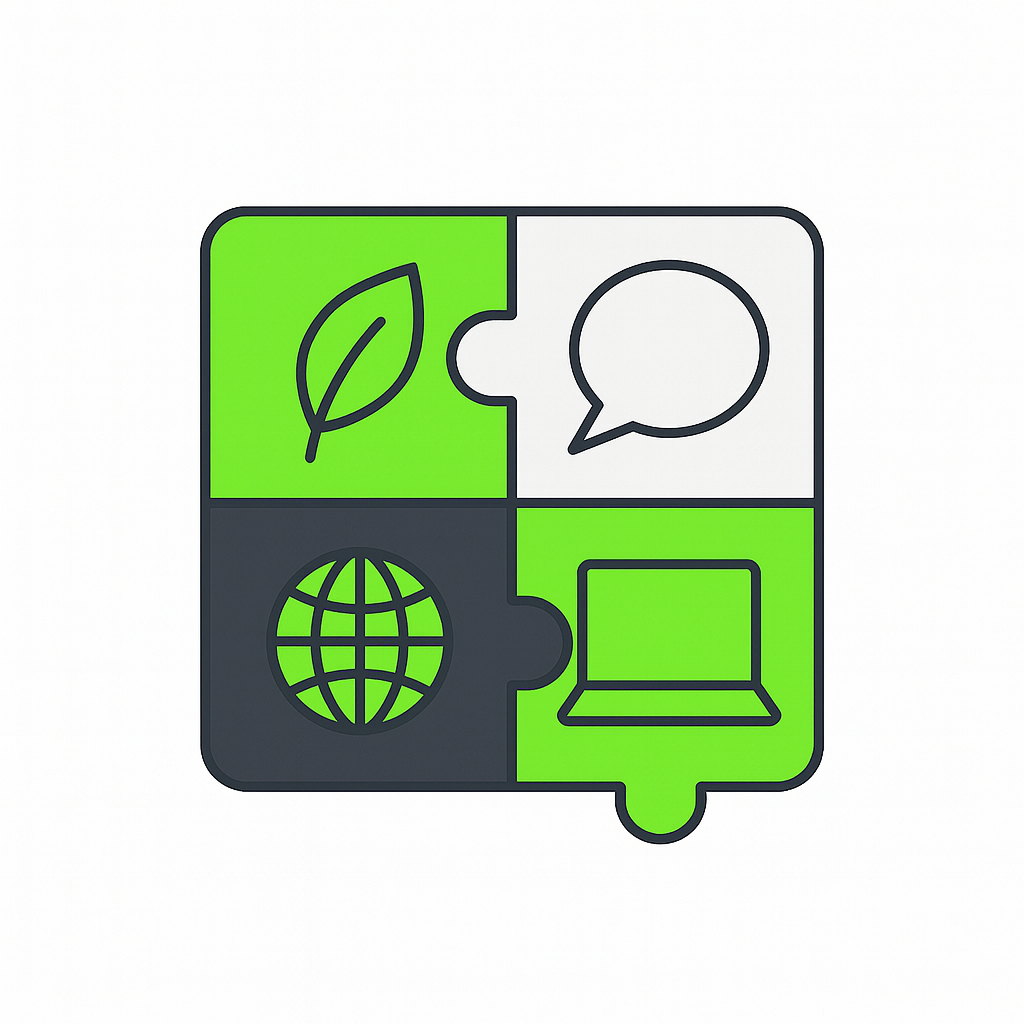Empowering Youth Workers in Sustainable Communication

Introduction
The climate crisis is not only a scientific challenge—it is fundamentally a communication challenge. The voices of scientists, policymakers, and environmental advocates can remain unheard unless they are translated into everyday narratives that engage communities. This is where youth workers step in: individuals who are deeply embedded in local contexts and capable of mobilizing young people through education, social activities, and direct mentorship.
The Green-Comm Project, supported under the Erasmus+ framework, seeks to transform youth workers into agents of sustainable communication. By equipping them with structured training modules, practical toolkits, and digital platforms, the project ensures that climate literacy is not only transferred but internalized, acted upon, and multiplied across networks of young people in the Netherlands, Turkey, Estonia, and Portugal.
1. Why Communication Matters in Sustainability
Scientific consensus on climate change is overwhelming, yet public understanding remains fragmented. Studies by the IPCC and UNESCO emphasize that misinformation, disinformation, and climate apathy represent as significant a barrier as technological or economic constraints. Youth workers, who often engage directly with underserved or less informed communities, represent a critical bridge between science and society.
The Green-Comm Project adopts a green communication and media literacy approach:
• Teaching youth workers how to analyze climate misinformation,
• Enabling them to craft narratives that are hopeful and action-oriented,
• Supporting them in designing campaigns that resonate with the lived realities of young people in their communities.
2. National and Local Contexts: Project Countries in Focus
Netherlands: Media Literacy as a National Priority
The Netherlands has been a pioneer in “mediawijsheid” (media wisdom), a national agenda that integrates digital literacy into education and youth programs. Climate communication fits naturally within this framework. Dutch youth are already mobilized through campaigns like “Youth for Climate NL” and initiatives by the Dutch Youth Council, which amplify sustainability messages through social media and schools.
Within this landscape, Green-Comm project builds on existing literacy programs but adds a climate-specific toolkit, ensuring that youth workers can directly address misinformation about energy transition, agriculture, and biodiversity—topics highly relevant in Dutch public discourse.
Turkey: Grassroots Energy Meets Structured Training
In Turkey, young people are increasingly engaged in environmental issues through grassroots campaigns and NGOs, from local recycling initiatives to nationwide youth climate strikes. However, systematic training for youth workers has often been missing. The Green-Comm Project addresses this by embedding formalized training modules into the daily work of Turkish youth organizations. For example:
• Modules on green storytelling allow youth workers in Istanbul to transform local environmental struggles into compelling narratives.
• Practical assignments ensure that workshops in cities like Izmir or Ankara result in actual campaign products—videos, posters, and social media strategies—that are tested with youth groups.
This structured approach helps Turkish organizations scale up their activism, moving from spontaneous events to sustainable, evidence-based communication strategies.
Estonia: A Digital Nation Leveraging Innovation
Estonia is internationally recognized as a digital pioneer. With e-governance, online education, and digital literacy embedded into daily life, Estonian youth workers are uniquely positioned to integrate the project’s online tools.
In Estonia, environmental education has also been linked with digital innovation, such as interactive apps for waste sorting or online citizen science projects for biodiversity monitoring. The project leverages this national strength by:
• Using the online training platform as a hub for Estonian youth workers,
• Supporting the translation of modules into Estonian,
• Encouraging integration with existing digital civic platforms, ensuring climate narratives reach both urban and rural youth.
Portugal: Creativity and Cultural Storytelling in Sustainability
Portugal has seen a surge of creative sustainability initiatives, from community energy cooperatives to youth-led media projects. Organizations like Youth for Future Portugal mobilize students, while digital tools (including 3D learning environments) have been used to raise awareness about sustainability.
The Portuguese context highlights the role of storytelling and creativity. Youth workers here are particularly skilled at weaving environmental messages into cultural formats, music, theater, visual arts. The project strengthens this by offering a Green Communication Toolkit that youth workers can adapt to their creative traditions, ensuring local resonance and cultural authenticity.
PROJECT RESULTS
Within the framework of the GreenComm project, three main outputs have been developed to strengthen the communication and media literacy skills of youth workers engaged in environmental and climate-related work.
